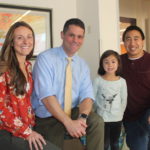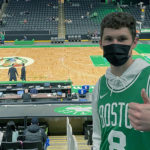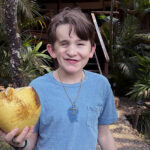A model patient: Alexia’s triumph over moyamoya disease
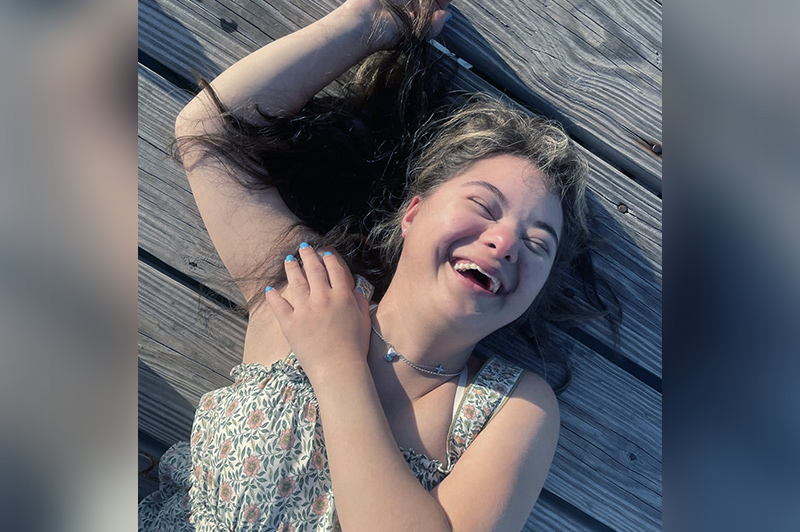
If you’re lucky enough to get time on Alexia’s packed schedule, you’re in the company of a motivated and ambitious young woman who — in the face of a scary diagnosis — shows others they can do anything they put their mind to.
From subtle symptoms to diagnosis
Alexia’s fight against moyamoya disease, a rare condition that narrows and blocks blood vessels in the brain, began subtly. When she was 13, she started having dizzy spells, weakness in her legs and knees, and persistent fatigue. Initially, her symptoms were attributed to her having a diagnosis of Down syndrome, but when she experienced a seizure, her family pushed for more answers. They saw multiple doctors near their home on Long Island, but none could find a definitive cause.
“I remember asking, “Are you sure she’s not having a stroke?’” says Alexia’s mom, Alex. “But everyone said she looked fine.”
Then, in October 2017, when she was 14, Alexia did have a stroke that temporarily paralyzed her left arm and caused her left leg to drag. Alex and her husband, Edwin, rushed her to the ER. Alexia spent the next three weeks in the hospital undergoing tests and examinations that ultimately provided a diagnosis of moyamoya disease.
“I immediately started doing research and saw how rare it is,” Alex says. Originally thought to affect one in 1,000,000 Americans, newer research shows that moyamoya may be far more common, perhaps affecting as many as five to 10 times that number of people, especially those in at-risk populations, such as individuals with Down syndrome.
Finding the right team for the job
Treating Alexia’s moyamoya would require a surgery called pial synangiosis, which reroutes healthy scalp blood vessels to the brain, bypassing the vessels narrowed by moyamoya. In her research, Alex discovered that pial synangiosis was pioneered at Boston Children’s Hospital and that Cerebrovascular Surgery and Interventions Center (CSIC) co-director Dr. Ed Smith is one of the most experienced surgeons performing the procedure.
Alex reached out and as soon as she and Alexia met Dr. Smith and the CSIC team, they knew they had come to the right place.
“Dr. Smith just kind of blew us away,” Alex says. “He had such a great bedside manner, and he explained everything so Alexia could understand it. He was very friendly and encouraging and made us feel like everything was going to be okay.”
“He told me I was wicked smart,” Alexia says.
Of course, personality wasn’t the only factor in their decision to pursue surgery with Dr. Smith and the team. The family was also impressed by Dr. Smith’s experience and expertise. “His track record of having so many of those surgeries just made us feel like he was the man for the job,” Alex says.
A life-changing surgery and comfort during recovery
In January 2018, Dr. Smith rerouted healthy blood vessels in Alexia’s brain, restoring healthy blood flow. The post-surgery period was challenging, involving intense physical and occupational therapy, but Alexia approached it with her trademark spirit and determination.
“It felt like home,” Alexia says. “Everybody was so nice to me.”
A role model life
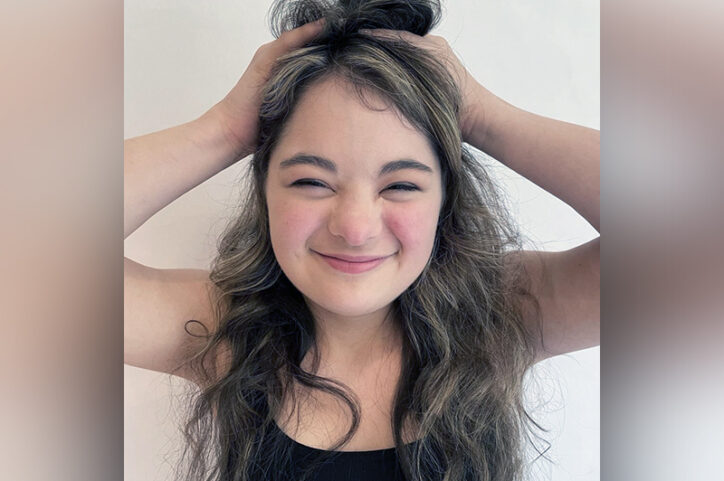
In the almost six years since her surgery, Alexia has flourished. Today, her calendar is packed with activities and commitments.
She joined her high school’s varsity dance team, defying expectations and proving she could excel physically. Her commitment to physical fitness also inspired her to launch the “Box Fit Experience,” a boxing program at her family’s gym tailored to individuals with varying abilities. The program offers a supportive and inclusive environment for those looking to improve their physical and mental well-being.
Alexia’s studying graphic design and retail technology, which involves working in the school’s snack shop. Outside of school and the gym, Alexia’s busy pursuing modeling and has secured contracts for national campaigns.
Be brave and be courageous. You can do anything after your surgery and rehab. And see Dr. Smith.”
– Alexia
Alexia’s commitment to her goals and to helping others demonstrates her limitless potential, which is something she hopes others see in themselves, especially those facing moyamoya or a similar diagnosis.
“Be brave and be courageous,” Alexia says. “You can do anything after your surgery and rehab.” And, she adds: “See Dr. Smith.”
Learn more about the Cerebrovascular Surgery and Interventions Center at Boston Children’s Hospital.
Related Posts :
-

Advice for moyamoya families from a mom who’s been there
About a year ago, our 4-year-old daughter, Kalea, started having headaches. After four months, we called our pediatrician because the ...
-

Another shot for Conner: Getting back in the game after brain surgery
Watch Conner Hicks coach basketball at Midlakes Middle School in Clifton Springs, New York, and you’ll see a young ...
-

New technique designed specifically for children gives surgeons another moyamoya treatment option
Moyamoya is rare blood vessel condition that is a major cause of pediatric stroke. Surgical revascularization can be very effective; ...
-

Defying the odds: Cruise’s triumph against cavernous malformations and debilitating headaches
As a toddler, Cruise — now 13 — faced a rare cancer diagnosis that came with an 11 percent chance of survival. But with ...


